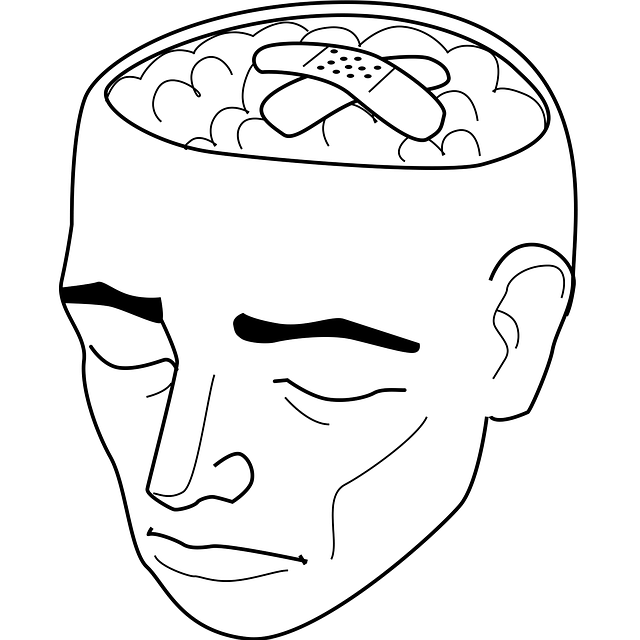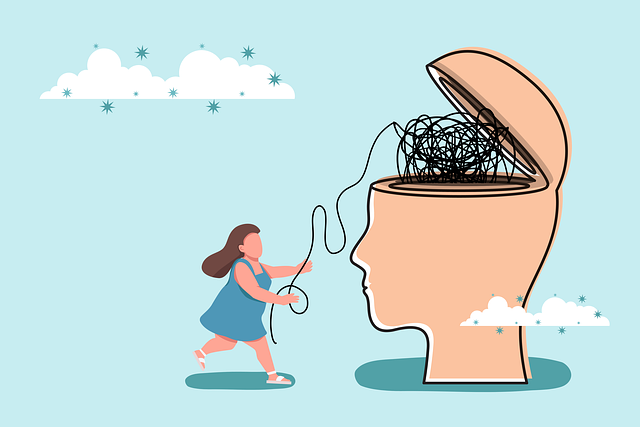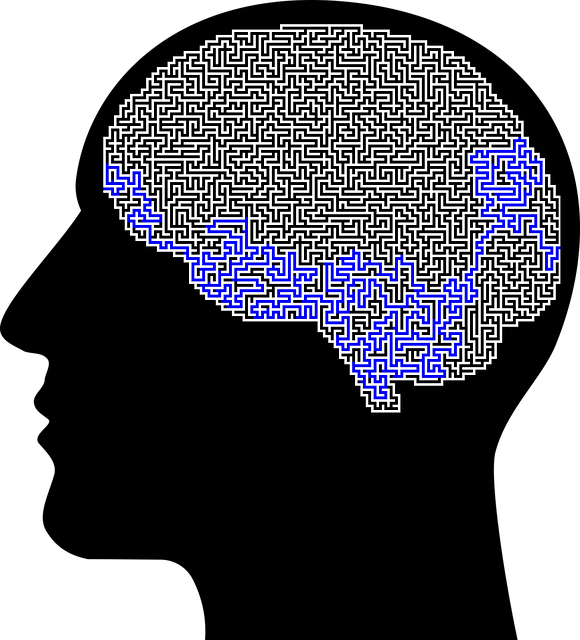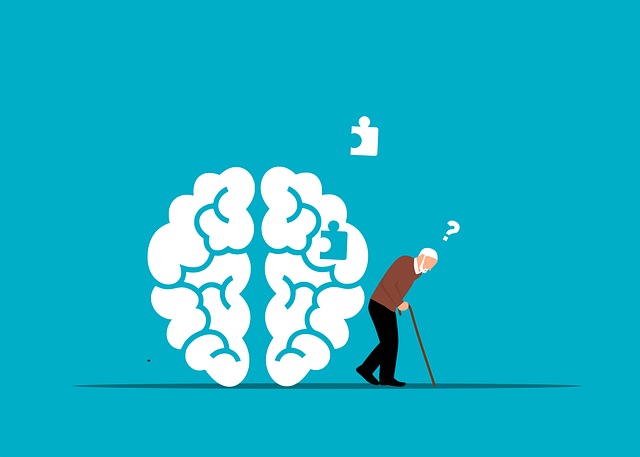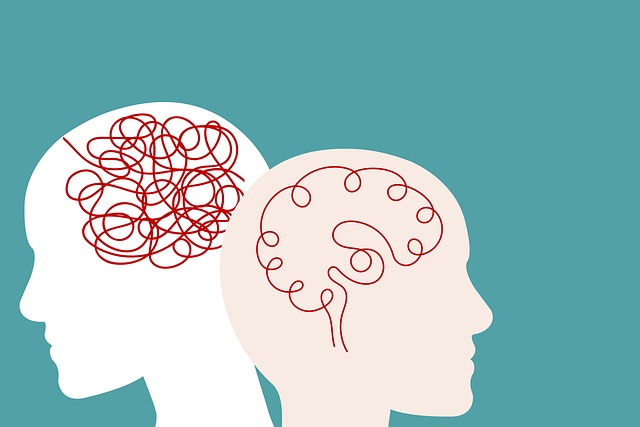Blended families face unique challenges with stress management due to financial pressures, step-parenting difficulties, and adjusting to new living arrangements, leading to emotional issues like anxiety, depression, and low self-esteem. Therapy is crucial for developing coping skills, strengthening relationships, and fostering a supportive environment. Cognitive Behavioral Therapy (CBT) and mindfulness practices like meditation help manage stress and improve mental well-being. Lifestyle changes including balanced nutrition, hydration, regular exercise, and adequate sleep further enhance mental health outcomes for blended families.
Stress reduction is a vital aspect of maintaining mental health, especially within complex family structures. This article explores effective methods to alleviate stress in blended families, addressing its unique challenges. We delve into understanding the root causes and impacts of stress, offering strategies such as creating supportive environments, cognitive behavioral therapy (CBT), mindfulness practices, and lifestyle adjustments like nutrition and sleep. By implementing these techniques, blended families can foster resilience and enhance overall well-being. Discover practical steps towards a calmer and happier home.
- Understanding Stress in Blended Families: Causes and Impact
- Creating a Supportive Environment: Building Resilience
- Cognitive Behavioral Therapy (CBT): A Powerful Tool for Managing Stress
- Mindfulness and Meditation Techniques for Relaxation
- Lifestyle Changes: Nutrition, Exercise, and Quality Sleep
Understanding Stress in Blended Families: Causes and Impact

Blended families, with their unique dynamics, often face distinct challenges when it comes to stress management. Understanding the causes of stress in these households is crucial for implementing effective strategies to reduce its impact on both parents and children. The integration of two or more families can lead to a myriad of emotional issues, from financial pressures to step-parenting difficulties and adjusting to new living arrangements. These transitions may trigger feelings of anxiety, depression, and low self-esteem, especially in children who are still developing their sense of security.
The impact of stress in blended families can manifest in various ways. Children might struggle with behavioral issues, academic performance problems, or difficulty forming attachments. Parents, on the other hand, may experience increased tension, leading to potential conflicts and a heightened risk of depression prevention. Therefore, seeking therapy for blended families becomes an essential tool for coping skills development, allowing individuals to navigate these complexities, strengthen relationships, and foster a supportive environment that mitigates stress-related challenges.
Creating a Supportive Environment: Building Resilience

Creating a supportive environment is a powerful way to build resilience and reduce stress, especially for those navigating complex family dynamics like blended families. Therapy can play a pivotal role in this process by providing a safe space where each member’s unique needs and experiences are acknowledged. Through individualized therapy sessions or group support, individuals learn coping strategies tailored to their circumstances, fostering a sense of empowerment.
In the context of public awareness campaigns development, promoting cultural sensitivity in mental healthcare practice is essential. By recognizing and addressing the specific challenges faced by blended families, therapists can offer trauma-support services that resonate with diverse cultural backgrounds. This inclusive approach ensures that everyone involved feels understood and empowered to create a nurturing environment at home, further strengthening their resilience against stress and adversity.
Cognitive Behavioral Therapy (CBT): A Powerful Tool for Managing Stress

Cognitive Behavioral Therapy (CBT) is a highly effective approach to managing stress and has proven beneficial for individuals from diverse backgrounds, including those in blended families. This form of therapy focuses on identifying and challenging negative thought patterns and behaviors that contribute to distress. By modifying these cognitive processes, CBT equips individuals with valuable coping strategies to navigate life’s challenges more effectively.
For blended families, where dynamic family structures may exist, CBT can be a game-changer. It aids in understanding the unique stressors and potential conflicts that arise from merging households, helping each member develop resilience. Moreover, CBT encourages the development of a robust self-care routine and mindfulness practices such as meditation, which are essential for maintaining mental well-being. These tools foster better emotional regulation, allowing family members to approach stressful situations with clarity and composure.
Mindfulness and Meditation Techniques for Relaxation

Mindfulness and meditation have emerged as powerful tools for stress reduction, offering a peaceful sanctuary from the chaos of daily life, especially relevant in today’s fast-paced world. These ancient practices are now widely recognized as effective therapies for blended families navigating complex dynamics. By focusing on the present moment and cultivating non-judgmental awareness, individuals can experience profound relaxation and emotional balance.
Incorporating mindfulness involves simple yet profound techniques such as deep breathing exercises, body scans, and mindful walking. Meditation, with its various forms, encourages mental clarity and composure. For those seeking a more structured approach, guided meditations or mindfulness apps can be excellent resources. These tools often incorporate nature sounds and soothing imagery to enhance the relaxation experience, ultimately contributing to improved mental health outcomes, especially when integrated into a comprehensive strategy that includes other stress-reduction techniques and, where necessary, professional support tailored to the unique needs of blended families.
Lifestyle Changes: Nutrition, Exercise, and Quality Sleep

In the quest for stress reduction, lifestyle changes often represent a powerful starting point, especially for those navigating therapy for blended families. Nutrition plays a significant role; incorporating balanced meals rich in essential nutrients supports both physical and mental well-being. For instance, omega-3 fatty acids found in fish have been linked to improved mood regulation. Additionally, staying hydrated contributes to enhanced cognitive function and overall calmness.
Exercise is another cornerstone of stress management. Engaging in regular physical activity stimulates the release of endorphins, nature’s very own mood elevators, promoting a sense of well-being. Moreover, ensuring adequate quality sleep is paramount; it allows the body to restore and rejuvenate, facilitating better emotional healing processes. Empathy building strategies, such as mindful breathing exercises, can be incorporated into daily routines to reduce mental illness stigma and foster a sense of tranquility within the family unit.
In conclusion, managing stress in blended families is a multifaceted approach that combines understanding the unique dynamics, fostering a supportive environment, and adopting evidence-based practices. By implementing strategies like Cognitive Behavioral Therapy (CBT) to address root causes, practicing mindfulness for relaxation, and embracing lifestyle changes centered around nutrition, exercise, and sleep, parents in blended families can significantly reduce stress levels and enhance their overall well-being. These methods, tailored specifically for the complexities of blended households, offer a holistic path toward building resilience and nurturing a peaceful family environment.
